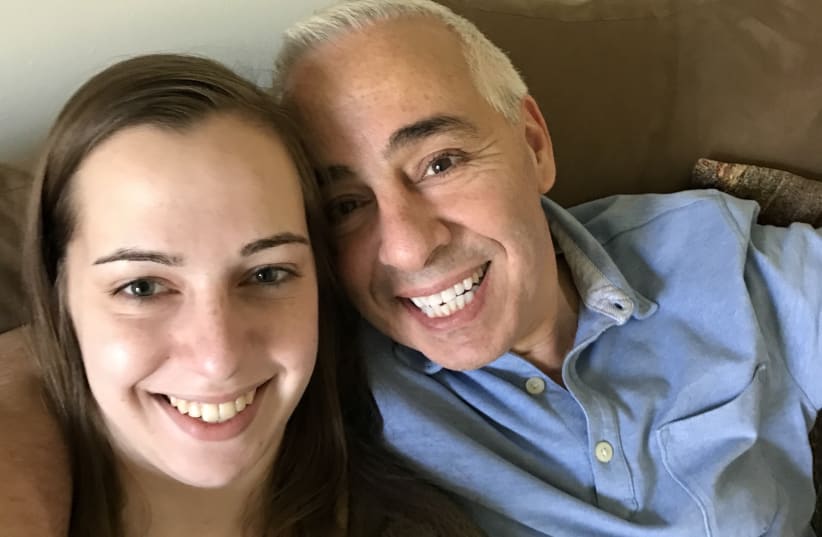Fourteen years ago, I lived a life of the unspeakable.
Eleven emergency room visits. Five rehabs. Zero hope.
A 12-step abstinence-based program (peer-to-peer fellowship) saved my life. Three years ago, I almost lost my daughter to an opiate and heroin overdose.
In the US, one in 12 adults suffers from substance use disorder – that’s 18.7 million Americans struggling with this chronic medical condition. In Israel, accurate statistics are hard to come by because, in the Jewish community, hardly anyone talks about the opioid epidemic, especially if it ravages their family.
The stigma surrounding S.U.D. in our community is stifling. Most in the Jewish community don’t believe that this is a “Jewish Problem.” The Bible tells us that there is no such thing as a Jewish drug addict. Moderation is a constant thread running through the Talmud, and biblical passages continually point out the perils of excessive use of mind-altering substances.
When my daughter Sasha was at her worst, locked in an apartment using highly-potent street drugs, she was disconnected from the realities of her illness. She was unemployable, unreliable and most times untraceable. She was suffering in private.
Sasha desperately needed treatment, but in the past, my wife and I pushed her away. We parented from a place of stigma and punishment, disowning her and not understanding that she was battling a life-threatening illness.
To be honest, I was embarrassed to share this painful reality with my family and break my daughter’s anonymity. I come from a large Sephardi family of successful doctors, lawyers, and Wall Street investors who did not want their stature in the community tainted. I felt like I would be perceived as a failure. Perhaps they would disown me as well.
So my wife and I needed a different approach to help Sasha. We knew something had to change or she might overdose. We decided to come from a place of love. We convinced Sasha to meet us at a diner, and we brought back the compassion that the stigma had taken away. We reassured her that we loved her, that she was part of the family and that we would do everything in our power to help her find the strength to get well.
We separated the illness from the individual.
When she left the diner that day, we weren’t sure if we had reached her. We cried. But then, miraculously, she came back and allowed us to drive her to receive inpatient treatment.
Sasha has withstood the bumps and bruises of recovery and recently celebrated two years of sobriety. My daughter and I have been given the gift of sobriety, and I realized that I needed to be of service by carrying an important message of compassion and empowerment to parents with loved ones suffering from S.U.D. I decided to volunteer my time to nonprofit organizations, and it was through this volunteer work that I was asked to share my story at a press conference where Sen. Kirsten Gillibrand introduced the “Family Support Services for Addiction Act of 2020.” Overnight, unbeknownst to me, I became a national recovery and family advocate addressing the opioid epidemic. Since then, I’ve made my advocacy work a full-time vocation. It’s my passion. I’ve been speaking on behalf of the legislation, and contributed to its passage through the House of Representatives and into the Senate.
Recently, I was interviewed on Canadian National Television (“Discussing The Billion Dollar Purdue Pharma Opioid Settlement”) and its implications worldwide. Today, I’m proud to say my daughter and I continue to share our journeys in recovery together.
My wife and I were fortunate enough to not receive “that phone call” so many other parents have received confirming their worst nightmare. I understand that the power is in the personal story, and I share mine in hopes that it will ignite loving, destigmatized conversations among Jewish parents who may have children suffering from S.U.D.
Surprisingly, when I finally shared this story with my family on how Sasha successfully triumphed over her struggles with S.U.D., the reception was mostly positive and supportive.
This would not have been possible without that one, life-changing conversation at the diner.
As it says in the Talmud, “When you save one life, you save the world.”
The author is an international recovery and family advocate addressing the opioid crisis
